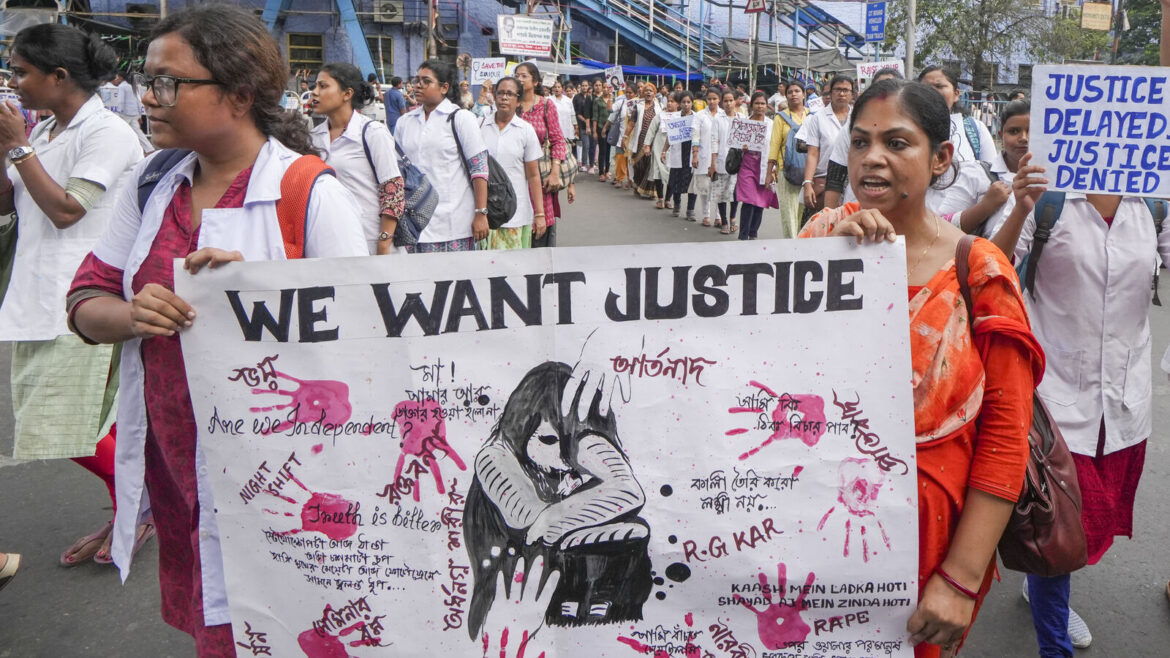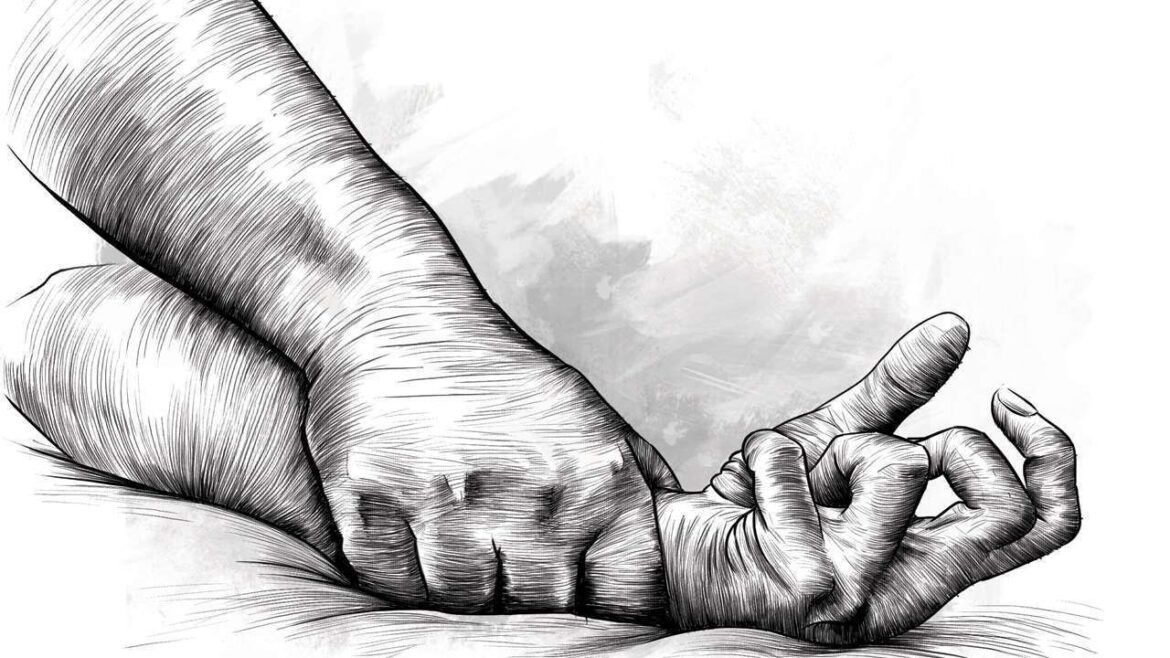By Kanksshi Agarwal & Avani Bansal
(First published by The Wire: https://thewire.in/politics/charity-begins-at-home-political-parties-must-lead-the-way-to-make-working-spaces-safe-for-women)
The mind-numbing story of the brutal rape and murder of a young doctor at RG Kar Hospital in Kolkata has left us all aghast! Colloquially being called Nirbhaya 2.0, people, especially women, hitting the streets at midnight under ‘Reclaim the Night’, is all but a sombre reminder of history repeating itself.
While the leader of every political party has expressed disgust and condemned the incident, the question is – will anything change for women’s safety or just a couple of protests before everything returns to business as usual?
It was heartening to see that across party lines, political leaders expressed the need to see the guilty punished but we also saw calls for not ‘politicising’ the issue.
Mamata Banerjee is reported to have said: “I want to tell these political parties – don’t try to politicise the incident just for a few likes on social media and media footage.”
Sagarika Ghose said, “As the mother of a doctor I am appalled and shocked at the heinous ghastly crime at RG Kar hospital over which there should be NO politics…”
“I would like to express my pain once again, from the Red Fort today. As a society, we will have to think seriously about the atrocities against women that are happening – there is outrage against this in the country. I can feel this outrage. The country, society, and state governments will have to take this seriously,” Prime Minister Narendra Mod said from the Red Fort on Independence Day.
Rahul Gandhi, Leader of the Opposition, also took to X (formerly, Twitter) to express his deep shock at the Kolkata incident and expressed that women and the doctor community are feeling unsafe. He also suggested that from Hathras to Unnao, and from Kathua to Kolkata, there is a rising number of incidents of violence against women and every sector of the society needs to discuss and take concrete steps towards addressing this.
So if all top political leaders are aligned on the need to address women’s safety – will they take the necessary steps, voluntarily, to address women’s safety in political parties?
In the wake of the Kolkata ghastly rape, the real question is – will the political parties in India take it upon themselves to implement PoSH (Prevention of Sexual Harassment at Workplace, 2013) within political parties? After all, no one would argue that the safety of women is also much needed in political spaces, as well as in informal sectors.
A 2014 United Nations study, Violence Against Women In Politics highlighted the violent nature of politics in the subcontinent, during and after elections. Such violence, combined with a lack of implementation of protective laws dissuades women from joining the political arena.
As per a study published in Livemint (30/04/2014): Physical abuse suffered by women politicians in India is 45% as against 30% in Pakistan and 21% in Nepal. Verbal abuse suffered by women politicians in India is 49% as against 23% in Pakistan and 31% in Nepal.
The Centre for Social Research with the UN published a report on violence against women in politics in 2014: “Nearly 50% respondents said they faced verbal abuse and 45% said physical violence and threats were common, particularly true during election campaigns. 67% of women politicians said perpetrators were male contestants and 58% party colleagues. Violence and harassment at the hands of colleagues is a reason why we see only women from political families in politics.”
The UN General Assembly resolution 2018 (73/148): “Encourages national legislative authorities and political parties, as appropriate, to adopt codes of conduct and reporting mechanisms, or revise existing ones, stating zero tolerance by these legislative authorities and political parties for sexual harassment, intimidation and any other form of violence against women in politics.”
It is in accordance with this that the European Union passed Resolution No. 459, 2020 against violence against women in politics at the local and regional levels. Bolivia became the first Latin American country to criminalise violence against women in politics through Law No. 243 in 2012. Kenya, which has the highest representation of women in their parliament, thanks to reservation, has gone a step further and set up a Political Parties Disputes Tribunal, under the Political Parties Act 201. The UK Equality Act 2010 includes political parties. Peru, Mexico, and Costa Rica have bills pending in their parliaments to deal with violence against women in politics.
So why are the Indian political parties resting at “expressing deep concern and dismay” without actually taking steps to demonstrate their intention in real action? After all, no political party can be singled out, where the women haven’t raised serious questions regarding their male colleagues.
In the Kerala high court in Women in Cinema Collective v. State of Kerala (2018), the issue of bringing political parties within the ambit of the 2013 Act was raised but the high court did not deal with the matter at any length and did not consider whether members of a political party can be said to be in an employer-employee relationship, especially for members who may be employed by the party or even for those who work with a party on a voluntary basis.
But if all political parties are seriously enraged at the Kolkata incident, why not take voluntary steps to redress the situation, at least that which squarely falls within their own power by setting up voluntary mechanisms to address sexual harassment complaints?
After the landmark judgment of the Supreme Court in Vishaka, the Government of India enacted the PoSH law (Prevention of Sexual Harassment at Workplace, 2013), but with its implementation left entirely to district magistrates with no accountability measures in place, implies that it remains largely on paper.
For instance, under PoSH any workplace, private or public, which employs more than ten people is required to set up an Internal Complaints Committee (ICC) for addressing complaints pertaining to sexual harassment by the employees. Even if the employees are working on a voluntary basis, or if the work-related meeting takes place at someone’s home, any incident of sexual harassment is covered within the ambit of the Act. All employers are also required to conduct mandatory training under the PoSH Act to sensitise all its workers towards the norms and the law under PoSH.
But why do politicians get away with making rules for others, while conveniently avoiding implementing them on themselves? Charity, as they say, begins at home!
This incident requires true inner reflection beyond everyday politics. It’s a call to all the conscious keepers in India, and all politicians who do truly espouse women’s cause in politics beyond lip service, to do more than ‘everyday politics’ in an ‘everyday way’. They need to do ‘visionary, nay revolutionary politics in revolutionary way’. It begins with voluntary steps, of doing what they very well can within their own control, of ensuring equal women representation at all levels, of giving women more than just symbolic space in politics, of making political spaces safe for women.
It can begin with all political parties voluntarily setting up an Internal Complaints Committee (ICC). If the argument is that it can be potentially abused, we have to be mindful that the law that applies to all corporates in the country, to all other workplaces, can also be resisted on the same logic. In fact, allowing for ICC means that women raising complaints will be subject to scrutiny by senior women leaders in the party and will be acted upon if found right. But establishing no mechanism for women to address it is akin to turning a blind eye or pushing women’s safety under the carpet.
True homage and justice to the young doctor will be coming forward from some politicians and setting up ICC within their own political parties, and then also setting up committees to explore systemic efforts needed across sectors to ensure the safety of women in India. Any visionary takers?




